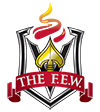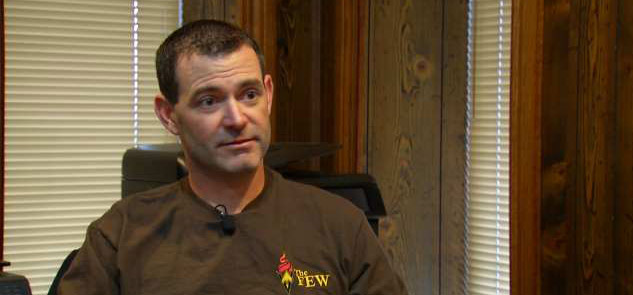Bonds of War Keep Vets Helping Vets
Craig Prosser was one of thousands packed into vehicles before dawn, speeding through the Iraqi desert on the road to Baghdad.
They were part of the mass ground force invasion a decade ago last week.
“The tension was thick,” Prosser said. “Everyone knew the objectives and everyone knew we stood a chance of losing people.
By JERRY WOFFORD World Staff Writer
Published: 3/25/2013 2:22 AM
Last Modified: 3/25/2013 7:00 AM
It was the start of a new front of the global war on terror that lasted through 2011, overthrew Iraqi leader Saddam Hussein and instituted a new democratic government. But it also resulted in the deaths of more than 4,400 American service members and the deaths of up to 134,000 Iraqi civilians, according to the Costs of War Project, a series of reports from the Watson Institute for International Studies at Brown University.
For those military members in the initial invasion and those who have fought there and in Afghanistan in the past 12 years, a bond was forged. So when those soldiers and families of service members are in distress, they do what they can to help.
They have started foundations, volunteered with veterans organizations and just helped others navigate the web of benefits they’ve earned. They help them reintegrate after leaving the military and help their fellow veterans if they get into trouble.
“Once you’ve been there and you’ve experienced combat with another person, it’s the mortar between the bricks. It bonds you forever together,” said retired Maj. Dan Rooney, founder of Owasso-based Folds of Honor, which provides scholarships for children of people killed overseas or injured in Iraq or Afghanistan.
March to War
Prosser, who now works as an advocate in the Tulsa Veterans Treatment Court, had been in the Army for about a month and married for about six months when he left for Iraq. His wife didn’t hear from him for three months and didn’t see him for another year.
On his unit’s march to the Iraqi capital of Baghdad, they passed through a town that appeared to be empty.
“It’s something like you see in the old Western movies where people know that something is about ready to go down,” Prosser said.
They came under attack, their first firefight in Iraq.
“There were two Iraqis in a foxhole position on the right hand side of the road and they lobbed out a couple grenades,” Prosser said. “A couple of my friends got shrapnel and that ensued our first firefight.”
While Prosser was moving north with the 101st Airborne Division, Ronny Sweger was already in northern Iraq, part of a special operations unit sent there to prepare for the invasion.
“Going into the north, my primary mission was combat search and rescue, then to seek out high-value targets,” Sweger said. “But we also linked up with Kurdish in the north and mobilized them to fight. It was extremely busy, but that’s what we’re trained to do.”
Sweger joined the Oklahoma National Guard in 1993 but soon joined the Army with the goal of becoming part of the Special Forces.
Sweger was among those first into Afghanistan and then in Iraq to conduct specialized missions before moving to the next.
“There were people fighting to get in the fight,” Sweger said. “We wanted in the fight. That’s what we trained for. We’re not war junkies, but if you spend all your life training, you want to do your job.”
‘Find a hole, fill a hole’
Rooney’s experience in Iraq, like that of many others, is still part of his life.
“For me, I don’t think there’s a day that goes by that I don’t think about it, at least for maybe a few seconds here and there,” Rooney said “It’s a very emotional experience that’s burned into your soul and part of who you are.”
Rooney flew F-16 jets with the Oklahoma Air National Guard’s 138th Fighter Wing, based in Tulsa. He was deployed three times to fly combat missions in Iraq.
He flew mostly night missions and would watch what was happening below him. He said he always felt something pull him to giving back to his fellow fighters.
It was on a flight back to the U.S. when he saw a family meeting the flag-draped casket that he knew how he could help. He started Folds of Honor.
“Combined with the experience in Iraq and shortly after that and seeing what I call the other side of war, with the families that are impacted forever, that sent me on this mission,” Rooney said.
Sweger said he also saw a gap in assistance. He left the Special Forces in 2009 not of his own wishes. He received a medical discharge for the culmination of injuries he sustained while in combat.
“I got wounded a few times – a few times too many – and they asked me to leave,” Sweger said. “It’s taken me a long time to get to this condition. I got a lot of physical wounds. They’re stable but they’re all chronic pain issues.”
So he left but didn’t know what to do. He said there was no period to decelerate from the breakneck pace of special operations. Several of his fellow members also experienced those issues with no one else to help find that focus.
He went to other veterans organizations but couldn’t find the help they needed, so he and several others in the same position made their own group.
“When I was in special ops, we did a lot of door kicking,” Sweger said. “The rule is if you find a hole, fill a hole. Put a gun in that hole. This is a huge hole, so we’re filling that hole.”
The Foundation for Exceptional Warriors was founded in December and takes Special Forces veterans on outdoor adventure trips, such as hunting or skydiving. But the focus is campfire therapy. It’s a group of men with similar experiences who talk about those experiences.
“These guys are more stable, they recognize that they’re not alone and they’ve started the process, and that’s what it’s all about,” Sweger said.
Casey Graves also had a long military career and was close to leaving before the attacks of Sept. 11. He re-enlisted soon after and became a medic with the Oklahoma National Guard’s 120th Combat Engineer Battalion, which deployed to Iraq in late 2003.
Graves is now a case manager at the Ernest Childers VA Outpatient Clinic in Tulsa. He works with an increasing number of service members who participated in either Operation Iraqi Freedom, Operation Enduring Freedom or both.
“It’s a stronger calling because of it,” he said. “I know what they’ve been through.”
But helping those veterans is also a form of therapy, Graves said. They are also able to talk about their experiences with people who have been there, which is therapeutic.
“I don’t care what war it was,” Graves said. “It was war.”
In the Veterans’ Treatment Court, Prosser said he expects more to come through the court system with drug or alcohol convictions, a result of trying to cope with their experiences.
“I fought my own battles and my own demons whenever I came back from my two deployments, still fighting them to this day,” Prosser said. “If I’m able to help a veteran who was for whatever reason unable to combat that demon at that time. … I can help him or her and be an ear for them to lean on and talk to.”
Click Here to Read Original Article.

